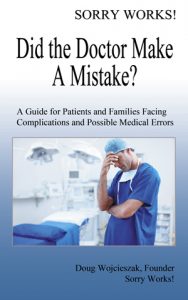Can Doctors Make Mistakes?
Can Doctors Make Mistakes?: Can you sue a doctor for wrong diagnosis? I strongly stress and believe that the question here should not be whether you can or cannot sue a doctor for a wrong diagnosis, but rather whether you should? They are humans and are thus equally prone to mistakes. There is no doubt, however, regarding the severity that their job entails, and the amount of care and attention they should and no doubt pay at all times. Doctors study extensively; undergo grueling training in order to provide the highest level of care that they possibly can to people who put their lives in their hands day and night.

Ways to Slip Up
A visit to the doctor typically entails a detailed discussion regarding any symptoms you may be experiencing. The doctor then examines you, and prescribes tests if deemed appropriate. A diagnosis is then formed by the doctor. At times, however, this process can go awry. One of the following may happen:
- Misdiagnosis: The doctor may apply can a wrong label or name to your symptoms
- Delayed diagnosis: Even though the doctor had the information to identify your problem, he (or she) didn’t until your symptoms became apparent and unmistakable
- Missed diagnosis: the doctor did not at all consider a certain condition that would explain all the symptoms.
A correct diagnosis is inarguably, the most important step of treatment. Without a proper diagnosis to begin with, how can treatment be administered?
How can you avoid diagnostic error?
You can take steps to avoid an error in diagnosis and completely sidestep asking yourself: can you sue a doctor for wrong diagnosis? Here’s how:
- Find an attentive doctor. In this respect, family physicians are a great option since they know your medical history as well.
- Prepare for your visit. Instead of casually blurting out symptoms, take care to note down exactly what is going on and the severity as well as frequency of your symptoms.
- Explain your symptoms in a clear and concise way. Avoid understating a symptom, or alternatively exaggerating.
- Take time to understand what tests are being prescribed and why.
After everything if you are still not satisfied, remember that you always have the option of getting a second opinion. No effort is too less when it comes to your health.

